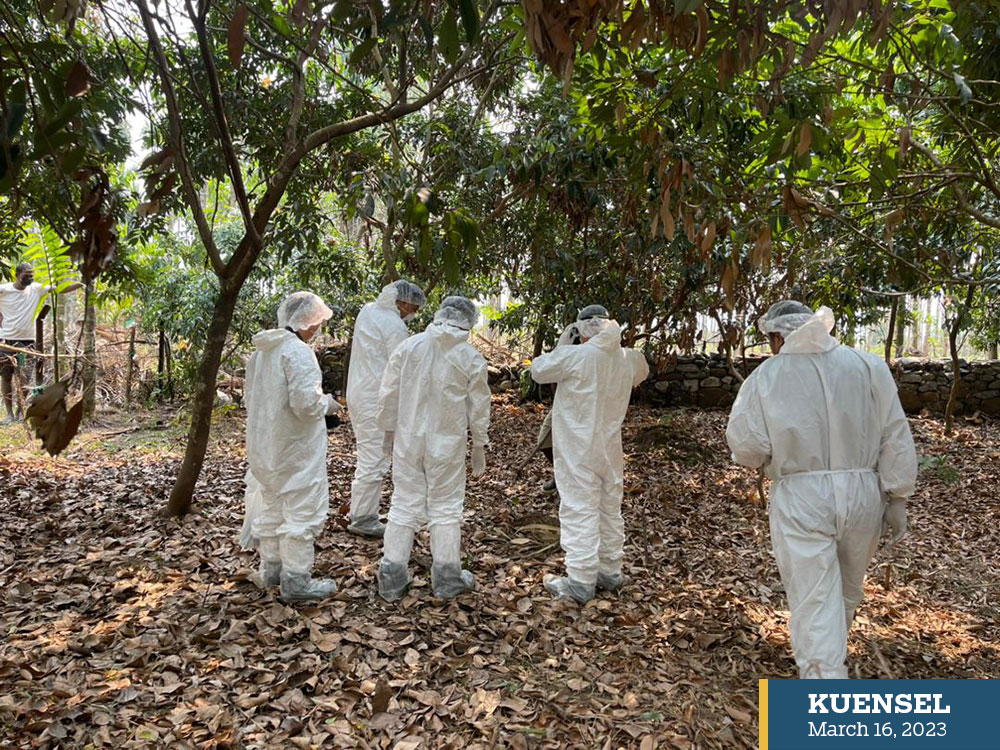YK Poudel
The March 13 bird flu outbreak in Singaygang, Tashichhoeling (Sipsu) in Samtse has been brought under control, according to the officials from Incident Operation Centre.
Highly Pathogenic Avian Influenza (HPAI-H5N1) is an extremely contagious viral disease in domestic poultry and wild birds. The disease causes high mortality in domestic poultry.
The samples were sent to the National Centre for Animal Health (NCAH) at Serbithang, Thimphu earlier this week for laboratory tests.
The outbreak has reportedly affected three local backyard poultry farms in Singaygang; the flu has so far killed more than 40 chickens and over 2,000 chickens are affected.
Infected chickens will have to be culled to stop further spread of the flu.
According to the dzongkhag livestock officials, the infection started from a dead jungle fowl which was found nearby the village earlier this month.
Can HPAI-H5N1 infect humans?
It can if a person comes in contact with the infected birds and their products.
The disease is zoonotic and can affect humans resulting in a range of mild to severe respiratory and gastrointestinal symptoms.
Tashichhoeling Gup, Kuenzang Peljure, said that the disinfection process in the area has also been initiated and foot-dip with disinfectants set up in the affected farms. “The incident response team is identifying the affected farms and chickens. We will cull the infected chickens as emergency measures.”
Although no human contact has been reported, samples have been collected and are being investigated.
The sale of poultry products has been banned in the village.
According to the agriculture and livestock ministry, the situation is under control and measures are already being put in place to contain it. The ministry has also advised poultry farmers to enhance the biosecurity of their farms to prevent HPAI infection and to immediately report unusual sickness or death of poultry birds.


